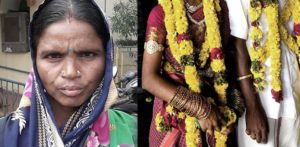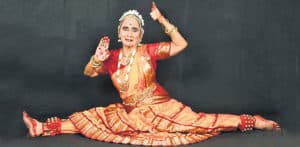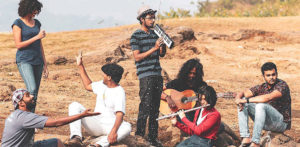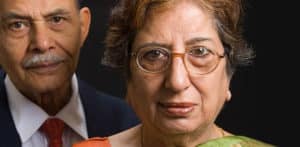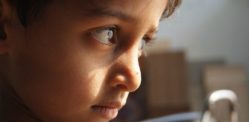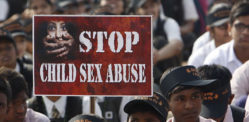“These statistics are likely to be much higher"
Child Sexual Abuse (CSA) is very much a hidden crime around the world. In the South Asian community, however, the secrets may run even deeper.
Accounts of sexual abuse are scarcely relayed by the victims themselves, particularly within tight-knit families where children and young people may be silenced from speaking out.
While female cases of abuse can be seen across nearly all ethnic groups in the UK, British Asian experiences are heavily guarded by cultural pillars of shame (‘sharam’) and honour (‘izzat’).
Unearthing personal experiences and encouraging women to speak out is undoubtedly a daunting challenge.
But doing so is of vital importance, not least because it sheds light on serious abuse against children but it also enables victims to find some form of closure from a traumatic past and seek helpful therapeutic interventions.
Lecturer in Child Protection at the University of Kent, Vanisha Jassal is currently undertaking vital research into intrafamilial child sexual abuse of females in England’s South Asian communities.
In an insightful interview with DESIblitz, Vanisha discusses some of the challenges and cultural taboos that many Asian women face when it comes to child sexual abuse.
Understanding Child Sexual Abuse in the UK
One of the key challenges when it comes to uncovering the problem of child sexual abuse in South Asian communities in the UK is determining the number of young girls who have been victims.
As Vanisha tells us:
“Unfortunately, the ‘hidden’ nature of child sexual abuse (CSA) across all communities means that it is generally not identified sufficiently by agencies and official statistics are known not to be representative of the actual incidence of CSA.”
As Vanisha mentions, in most cases, the statistics that are available regarding reported cases of sexual abuse are generally “lower than one would expect”.
According to the Department of Education (DfE), during 2016-2017, the number of children categorised under child sexual abuse by local authorities for those classed under Asian or Asian British was 112.
| Ethnic Group | 2016-17 | 2015-16 | 2014-15 | 2013-14 | 2012-13 |
|---|---|---|---|---|---|
| Asian or Asian British | 112 | 130 | 140 | 120 | 120 |
| White | 1817 | 1910 | 1910 | 1880 | 1660 |
| Mixed | 138 | 160 | 120 | 120 | 110 |
| Black or Black British | 97 | 80 | 90 | 80 | 70 |
| Other ethnic group | 36 | 40 | 30 | 20 | 30 |
Notably, these statistics relate only to ‘reported’ cases of sexual abuse.
Consequently, many incidents remain unreported, as female victims either do not speak out due to fear, or only do so when they are much older.
Vanisha admits:
“These statistics are likely to be much higher (for all ethnic groups).”
With limited information available on child sexual abuse cases, it is also difficult to gauge which age groups are most at risk in the UK:
“What we do know is that any child of any age is likely to be at risk and there is no specific profile of a perpetrator-victim model where CSA is concerned,” Vanisha tells us.
“The below data from the DfE statistics indicates that the 10-15 age range represents the highest rates but this cannot automatically imply that younger aged children are less at risk – they may not have developed the cognitive capacity to understand the abuse and may be more vulnerable to fears around disclosure because of their young age.”
| Age (all ethnic groups) | 2016-17 | 2015-16 | 2014-15 | 2013-14 | 2012-13 |
|---|---|---|---|---|---|
| Under 1 | 160 | 170 | 160 | 180 | 160 |
| 1-4 | 389 | 420 | 450 | 440 | 440 |
| 5-9 | 566 | 600 | 630 | 640 | 580 |
| 10-15 | 900 | 960 | 880 | 800 | 710 |
| 16 and over | 205 | 210 | 180 | 120 | 120 |
Vanisha adds:
“Equally, the 16+ age may feel more ashamed to disclose due to concerns about what peers may think and wanting to transition seamlessly into adulthood. I will need to look at this more closely to provide more evidence-based reasons.
“The data does not record ages against ethnicity, unfortunately.”
Izzat and Sharam in South Asian Communities
Symptoms of emotional and physical trauma are prevalent in all communities where sexual abuse takes place.
However, in South Asian communities, this is further deepened by cultural factors that include a sense of family honour or ‘izzat’ that must be protected against all costs, and a sense of shame or ‘sharam’ felt by victims in being violated out of their innocence and purity.
These age-old values remain prominent in modern-day families, especially where patriarchal values still hold true.
Sadly, this cultural baggage is one of the key reasons why many women feel as though they are unable to speak out about the abuse they face.
Vanisha explains:
“CSA research has identified common reasons for not disclosing abuse and these include feelings of guilt, shame, fear of not being believed, fear of the repercussions including family breakdown and direct threats of various nature from the perpetrator.”
Vanisha adds that within South Asian communities, female survivors “have an added layer of concern around Shame and Honour”. Together they have a great impact on child sexual abuse.
She continues:
“Having looked at research into mental ill health, domestic abuse and honour killings, it is certainly a known reality that the cultural concepts of ‘Shame/Sharam’ and ‘Honour/Izzat’ are deeply embedded in South Asian families and communities.”
“Research into this subject, both academic and governmental, indicates that disclosures and reporting of CSA is likely to be inhibited because of these concepts.
“This is the focus of my research as I believe that this needs to be unpicked more and I seek to do this through recruiting female adult survivors of CSA.
“In short, my hypothesis is that these concepts may be inhibiting children and young people from coming forward and thereby receiving appropriate support.
“Also related to this is that perpetrators from the community are fully aware of the concepts of ‘shame’ and ‘honour’ and know that children and even their parents possibly once abuse has been disclosed will be reluctant to make this a public issue.
“This means, very worryingly, that perpetrators are protected and may be exploiting this issue and abuse thereby continues.”
Identifying Perpetrators of Child Sexual Abuse
Another connecting element to intrafamilial child sexual abuse in South Asian communities in the UK are the family members involved.
Evidence of common types of perpetrators, although general, can tell us more about how much family honour plays a part in female survivors staying silent.
“What is known from academic research into CSA in the South Asian communities, is that perpetrators can be fathers, step-fathers, uncles, brothers, cousins, family friends,” Vanisha says.
“Perpetrators are very often close family members of the victim.”
There is also less information available on the risk that young boys face, in addition to girls:
“Rates of reported CSA are largely female victims and less is known about boys.
“Due to specific pressure that boys may be under around needing to protect their masculinity, it is known that boys are less likely to disclose.
“Furthermore, practitioners and society at large, is less likely to suspect CSA amongst boys. However, I have not yet come across research indicating that they are less or more at risk,” Vanisha admits.
As data across communities shows, females are sexually abused more than males.
Females from South Asian communities are also more likely to be victims and the research carried out by Vanisha is, therefore, looking at females only.
It is critical, however, to understand that males from all communities are also subject to sexual abuse and much more is needed to be known about this:
“The body of knowledge on CSA has just not developed enough to answer this more fully and it is a developing area of research.”

Warning Signs of Child Sexual Abuse
Vanisha tells us that there are a number of warning signals that can indicate if a child is being sexually abused.
They can vary from victims appearing withdrawn or angry to children beginning to express “overt sexual behaviours” which are inappropriate for their age.
She adds, however, that behaviours and characteristics can depend on the age of the child:
“There will be physical and/or emotional signs indicating that a child is being sexually abused and this will also depend upon the age of the child.
“With young children, there will be some physical signs such as difficulty/pain going to the toilet. They may also be very withdrawn or angry.
“They are likely to start expressing overt sexual behaviours unusual/inappropriate for their age.
“Older children may also exhibit overt behaviours such as anger or withdrawal.
“Older children may also begin engaging in risky behaviours such as joining gangs and become sexually exploited.”
Sadly many of these behavioural traits can continue on into adulthood if their trauma is not addressed.
Female adult survivors can all experience significant trauma and feelings of shame and guilt. As Vanisha states:
“Depending upon one’s resilience, access and engagement to relevant support services, availability of a supporting social network, consequences for survivors will vary.
“Generally the research indicates that survivors are likely to experience trauma, depression, suicidal tendencies, even suicide.
“Physically they may suffer a number of conditions and socially they may struggle to build trusting relationships. Often they will experience a combination of these conditions.”
Tackling Child Sexual Abuse in South Asian Communities
Part of tackling the issue of CSA in South Asian communities in the UK is encouraging survivors to speak out about their experiences.
By doing so, they can begin to overcome some of the trauma that they have been inflicted with and seek support from the right people within a safe environment.
In many cases, this will be outside of the family sphere, where factors of shame and honour may still be prevalent.
As such, there are a number of voluntary and statutory services available around the UK that can be accessed to support their recovery.
In particular, a number of charities have also been set up to specifically support adult survivors. They include:
- HAVOCA (Help for Adult Victims of Child Abuse)
- The Survivors Trust; CISters (Childhood Incest Survivors)
- National Association for People Abused in Childhood (NAPAC)
In the case of child survivors, there are again a number of support services such as Childline, NSPCC and others that can offer assistance where needed.
However, in the main, child protection services will manage child sexual abuse cases once they have been reported and will put in place support for children.
Sadly, one of the key factors that prevent many victims from speaking out is due to fear and the repercussions that victims may face.
Vanisha addresses this dilemma, saying:
“This is perfectly understandable and in South Asian communities this is more of an issue.
“However, research such as mine is seeking to influence statutory responses which are more sensitive to these cultural realities thereby encouraging children and young people to come forward and to seek helpful services for them as victims and for their family members.
“The repercussions of CSA are likely to impact one’s life more negatively where there has not been a disclosure and a journey made to recovery.
“The impact of the abuse will not just go away and it is critical that as a community we start to acknowledge that this happens in our communities and that our children are supported well.
“Not receiving therapeutic services is a huge injustice to them.
“With the support of adult survivors, we can increase our knowledge in this area and better understand the barriers to disclosure and seek to respond with more culturally sensitive services.”
Vanisha continues:
“This is my opinion only but I believe that there needs to be more openness about this issue.
“Parents need to talk to their children more about this. It happens and children need to know how to protect themselves.
“Through the NSPCC, schools have started to discuss the subject too and have quite prominent campaigns around this. I also think that community structures need to take the issue on board.
“For example, religious places of worship where child-centred activities of various kinds take place need to be a safe an environment as possible for children.
“There must be a child protection policy in place and volunteers/staff adequately trained to identify abuse and respond to disclosure. We know that at times abuse is managed within the community but this does not always enable the best support for the child.
“Community support should not replace statutory and trained therapeutic professionals from supporting the child. Furthermore, failure to report perpetrators means that other children may remain at risk.”
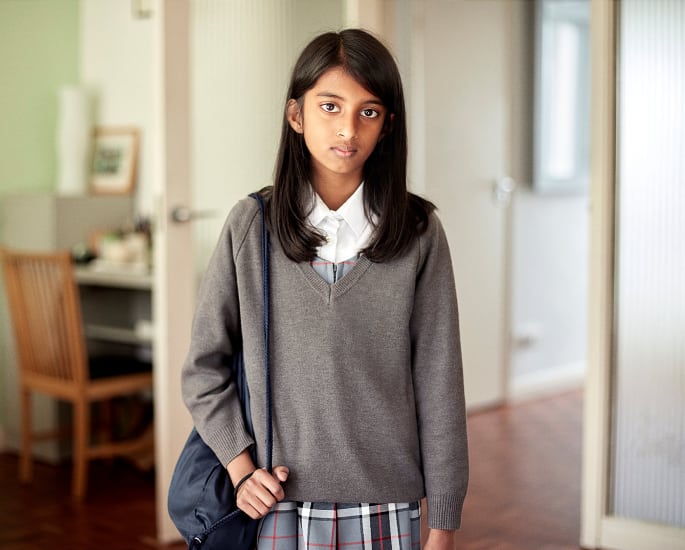
Getting Help
When it comes to getting help, other factors can also be of significance. Vanisha says:
“This very much depends upon the child. However, children may feel most comfortable initially telling a friend/trusted adult.
“Hopefully, this will lead to a referral to the local children’s social care team which will then action the referral and put a plan in place immediately to safeguard the child. This will include appropriate therapeutic support for the child.
“A child may also wish to contact the NSPCC helpline. Staff here are also legally able to action a referral to statutory services or indeed take direct themselves with their trained staff.
“If a child tells you that they are being abused, there is specific advice around handling the disclosure sensitively.
“It takes a lot of courage and often many years before a child discloses sexual abuse and it is extremely important that the person to whom he/she discloses manages this appropriately.”
It is evident that the issue of child sexual abuse in South Asian communities in the UK is a challenging one for practitioners to address.
For the female victims themselves, the fear of being outcast by their families may be a firm inhibitor that prevents them from speaking out.
But their stories are vital in ensuring that relevant measures can be taken by practitioners and communities themselves so that child sexual abuse does not happen in the future.
What Vanisha essentially hopes, is that by speaking to adult female survivors of child sexual abuse, she can explore more viable solutions to the problem of CSA and its traumatic impact on South Asian women and others.
If you are an adult survivor of child sexual abuse, Vanisha would be interested in hearing from you and you can contact her at sacsauk@gmail.com.







